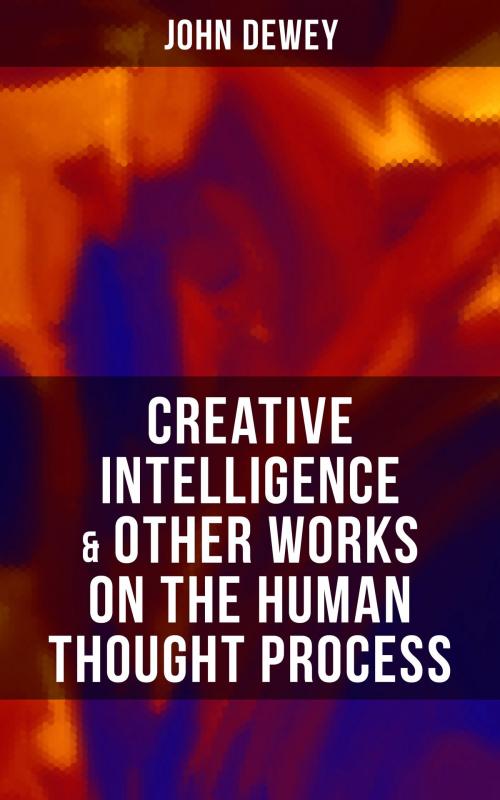CREATIVE INTELLIGENCE & Other Works on the Human Thought Process
Including Leibniz's New Essays; Essays in Experimental Logic; Human Nature & Conduct
Nonfiction, Religion & Spirituality, Philosophy, Epistemology| Author: | John Dewey | ISBN: | 9788027225972 |
| Publisher: | Musaicum Books | Publication: | October 16, 2017 |
| Imprint: | Language: | English |
| Author: | John Dewey |
| ISBN: | 9788027225972 |
| Publisher: | Musaicum Books |
| Publication: | October 16, 2017 |
| Imprint: | |
| Language: | English |
This unique collection of "CREATIVE INTELLIGENCE & Other Works on the Human Thought Process" has been designed and formatted to the highest digital standards. Table of Contents: How We Think Leibniz's New Essays Concerning the Human Understanding Essays in Experimental Logic Creative Intelligence: Essays in the Pragmatic Attitude et al. Human Nature and Conduct: An Introduction to Social Psychology Excerpt: "Everything that comes to mind, that 'goes through our heads,' is called a thought. To think of a thing is just to be conscious of it in any way whatsoever. Second, the term is restricted by excluding whatever is directly presented; we think (or think of) only such things as we do not directly see, hear, smell, or taste." (How We Think) John Dewey (1859-1952) is one of the primary figures associated with the philosophy of pragmatism and is considered one of the founders of functional psychology. His ideas have been influential in education and social reform. Known for his advocacy of democracy, Dewey considered two fundamental elements—schools and civil society—to be major topics needing attention and reconstruction to encourage experimental intelligence and plurality.
This unique collection of "CREATIVE INTELLIGENCE & Other Works on the Human Thought Process" has been designed and formatted to the highest digital standards. Table of Contents: How We Think Leibniz's New Essays Concerning the Human Understanding Essays in Experimental Logic Creative Intelligence: Essays in the Pragmatic Attitude et al. Human Nature and Conduct: An Introduction to Social Psychology Excerpt: "Everything that comes to mind, that 'goes through our heads,' is called a thought. To think of a thing is just to be conscious of it in any way whatsoever. Second, the term is restricted by excluding whatever is directly presented; we think (or think of) only such things as we do not directly see, hear, smell, or taste." (How We Think) John Dewey (1859-1952) is one of the primary figures associated with the philosophy of pragmatism and is considered one of the founders of functional psychology. His ideas have been influential in education and social reform. Known for his advocacy of democracy, Dewey considered two fundamental elements—schools and civil society—to be major topics needing attention and reconstruction to encourage experimental intelligence and plurality.















